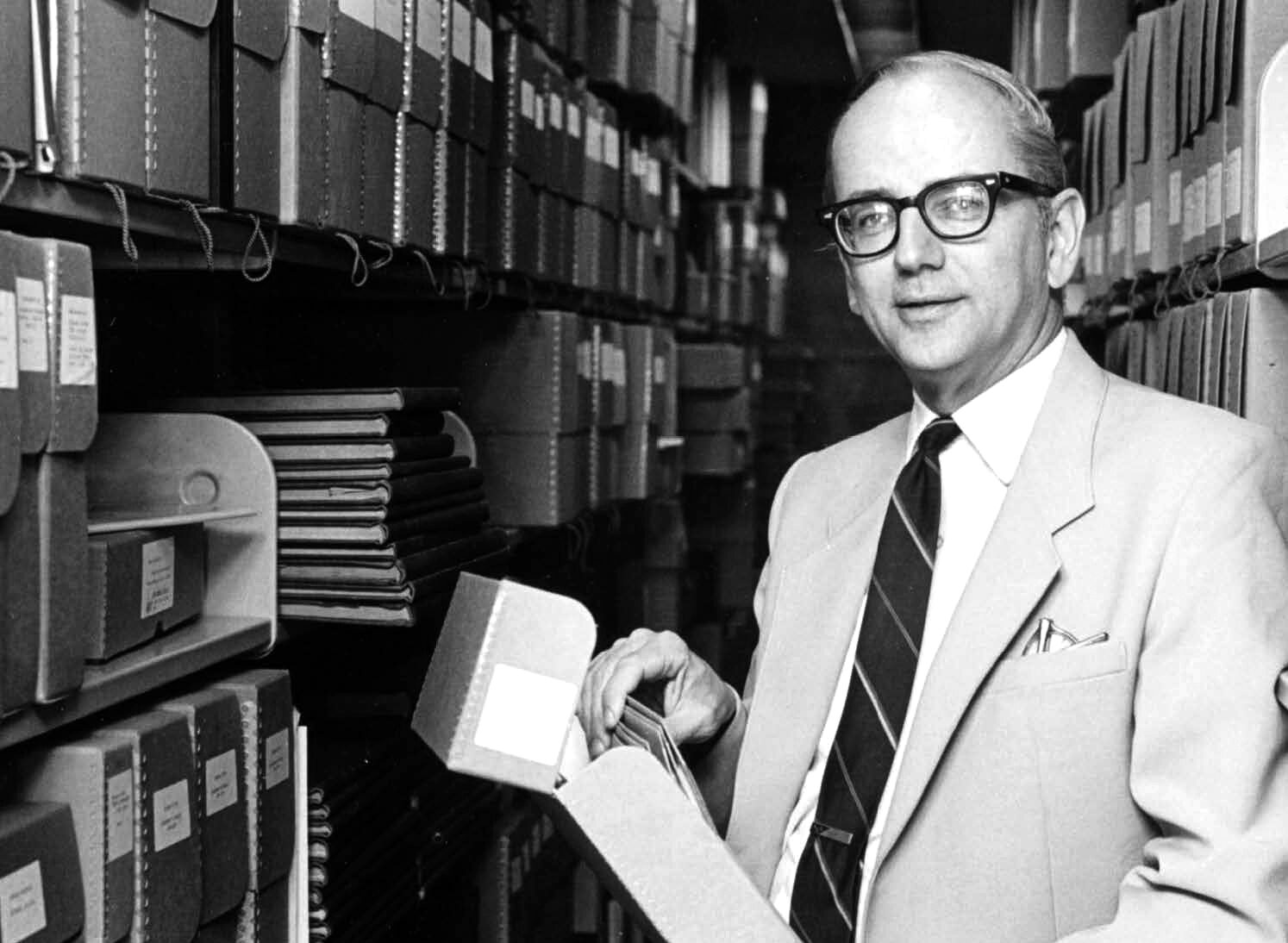
“Check the Koelsch book.” It’s the standard response to the innumerable questions that arise about Clark’s past.
Why was anthropology professor Franz Boas’ research considered revolutionary for its time?
Which United States president delivered Clark’s 1905 commencement address?
How did Clark students respond during wartime, from the world wars through Vietnam?
“Check the Koelsch book.”
The Koelsch in question is William A. Koelsch, M.A. ’59, Ph.D. (University of Chicago), retired Clark archivist and professor of history and geography, and his book is “Clark University, 1887-1987: A Narrative History.” The 270-page volume is the repository of Clark University history, researched and written over five years and published to coincide with the University’s centennial celebration.
Koelsch recalls that in 1982 he convinced then-Clark President Mortimer Appley to give him time to prepare the Clark book for the 1987 centennial. They agreed on a five-year deal that would allow Koelsch to teach three courses in the fall, then have the spring semesters off to write the book.

Crafting the book had its challenges, not the least of which was distilling a century of robust history into a manageable length, and ensuring the material was accessible for multiple audiences. Koelsch also was committed to making the book an accurate, honest accounting of Clark’s journey, which sometimes meant revealing uncomfortable truths about the University’s past — for instance, the lack of harmony between first president G. Stanley Hall and Clark’s founder, Jonas G. Clark, and Hall’s penchant for alienating faculty members.
“Non-Clark people are more interested in the University’s early years, and Clark people tend not to know about them,” he says. “I tried to get the record reasonably straight about those years.
“Obviously if I didn’t feel good about Clark I wouldn’t have written the book, but it was not an attempt to create a public relations piece. I attempted to call the shots as I saw them, and if something happened to be negative, that was included. One tries to be as fair and balanced as one can.”
Koelsch scoured the academic landscape for sources, as befits the man who founded the Clark University Archives and was named University Historian in 1982. In the 1970s he’d crossed the country looking for original manuscripts related to early Clark, and the book draws heavily on that material. He also conducted interviews with former faculty and administrators, and culled from the unpublished memoirs of former presidents Howard Jefferson and Appley.
“By the time I wrote I was in a secure position against anyone who might want to squawk about something,” he says with a chuckle. “I can defend every sentence using the backup material.”
The latter part of the book is informed by Koelsch’s personal knowledge of Clark. During his many years at the University he was heavily involved in faculty governance and earned a reputation for exercising careful judgment with a measured voice. His access to the inner workings of Clark gave him a unique insight when it came time to compose some of the more recent history.
“The last two chapters are a mix of what was documented in the archives, my own experience, and a set of videotaped interviews that [Dean of the College] Bob Campbell had done,” he recalls. “I also had a good deal of background material from other faculty who had been at Clark throughout those years.”
Koelsch, who retired in 1998 and now lives in San Diego, continues to write. His newest book, “Geography and the Classical World: Unearthing Historical Geography’s Forgotten Past,” will be published this summer.
Clark’s past remains in his blood. Since retirement Koelsch has written scholarly articles about G. Stanley Hall, and about the influence that Jonas Clark’s strong abolitionist beliefs had on the formation of the University that bears his name. His new book includes an examination of renowned Clark professor Ellen Churchill Semple’s writings about the geography of the Mediterranean region.
Of course, his narrative history of Clark remains his calling card; the volume is easily spied on bookshelves throughout the campus.
Koelsch most treasures the positive reaction he received for including photographs of two custodians in the book. (“I learned indirectly that Physical Plant was very pleased that two members of their department were in the book. And by God, if the Physical Plant department likes the book, then it was worthwhile.”)
One of the former custodians pictured, Harvey Curry, also delivered mail, and was a welcome sight during the World War II years when he would stop by classrooms with letters written by soldiers overseas for their sweethearts at Clark.
“I remembered Harvey from my student days,” Koelsch recalls. “One day I saw him back on campus and I introduced myself. He told me he was here because he wanted to take a look at the new library. He’d heard that some people liked it, and some didn’t, and he wanted to see it for himself so he could make up his mind.
“That is so Clark. Even the custodians evaluate the evidence and make their own judgments.”


